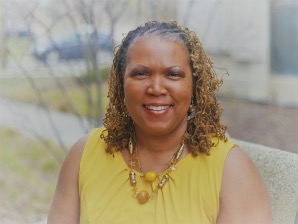
Teaching While Deaning
Besides screaming “Don’t do it!” or “Why in the (bleep) would you want to do that?” there are any number of tidbits people just don’t offer when it comes to moving from the classroom to administration. With any number of references to “going to the dark side” (of note: I take issue with any metaphorical use of “darkness” or “blackness” as pejorative), seldom does a professor stepping into administrative waters receive much of a verbal life jacket.
After five years as Vice President of Academic Affairs/Academic Dean, I have decided to return to the classroom and “fully” dwell as a Full Professor of New Testament and Culture. After a handful of years and a pandemic, it is time. Yet, as I reflect on this transition, I want to share some tools, tidbits, and techniques that I discovered behind the dean’s desk. Perhaps these thoughts and (in some cases) lessons will prove beneficial to anyone considering an administrative role. I hope my meditations won’t deter any inclinations or cause too much fear and trepidation. Here are my ruminations:
- As dean there will be deluge of email. Some of the communication is important. Yes, you need to know if a professor can’t teach a class or if the registrar is out sick. You will be added to listserves simply based on your signature. Some of the notices give pause; others are quite questionable. Is it important that the dean provide input on the new hand sanitizer or toilet tissue distributer?
- You will need to (re)define classroom activity. The student-class engagement decreases. My first year as dean I did not teach so I could get acclimated to the shift in responsibility and learn the numerous accountability layers. As an administrator you will quickly discover that the Boardroom is now your classroom. The Leadership Team meeting is the lecture hall. Staff meetings are, yes, pedagogical sessions.
- There is the danger of demonizing students. The year of non-teaching was helpful in getting my sea legs under me. However, I soon began to see our wonderful students as plagiarizing pirates, hell-bent on circumventing class portals and graduation paths. Primary interactions with students were pejorative and positioned as “coming to the principal’s office.” Well, I was happy to return to teaching at least one class a term because our students deserved a better view from me. I knew they honored the institution by their enrollment. They were not the imps the “daunting dean” occasions always warranted. Yet, the nature of “go see or email the dean” was the bowl for such unfavorable engagement.
- On some days administrative work is purely gratifying. A letter of reference for a hardworking student or an on-the-rise staff member is food for the soul. Student award ceremonies give so much ebullience. Faculty promotions and publications are the stuff of good wine. Commencement is just filled with joy and jubilation.
- People don’t stay in administration long. I really didn’t know that, and yet it is very true. Administration is both arduous and awesome. However, some days I felt awful about what happened in a faculty meeting or with a staff member. Select meetings and email exchanges with students grieve me to this day. By the way, did I mention the excessive emails? Toilet tissue? Hand sanitizer?
- In the end: Do You! I had to learn to take care of myself, especially when the doctor told me my blood pressure was high. What the hell! There was so much I had internalized without realizing it. I thought my daily exercise regimen and morning devotion were enough. All of my efforts were off-balance and insufficient. I was taking in more than I was releasing. If the body keeps the score, my body was winning (the game of stress and anxiety) while my head and heart were losing mercilessly. I had to recall what my Granny said: “When you die, the church will roll on.” Institutions will say kind things to get you on board. Maybe a few folk will show up at your funeral, but in the end the train will keep rolling. And soon after your burial, a new dean will be sitting behind that desk or in that virtual space. At first I saw in a glass dimly, now I see clearly. You don’t have to tell me twice. Now that I know better, I owe it to myself and my sons to do better.
In my five years as dean it was teaching students that really brought me back to my center. The one class a term reminded me of my vocational core. It was the mac to my cheese, the shrimp to my grits—I could go on. I dare not say I am done with administration nor that this work is not a part of my career calling. Ann Garrido’s work on the spiritual nature of administration proved quite helpful. I am finished, but not done. Nonetheless, there was—there is—something about preparing a syllabus, researching articles, planning course sessions, and inviting colleagues to share in my classroom via Zoom that gives me pedagogical pleasure.
I need administrative work to stretch my manifold gifts and talents. I need to teach to get to the heart of the matter. I am grateful for these experiences and stand on the cusp of many more. May you continue to discern your teaching path and/or administrative portal.
Leave a Reply